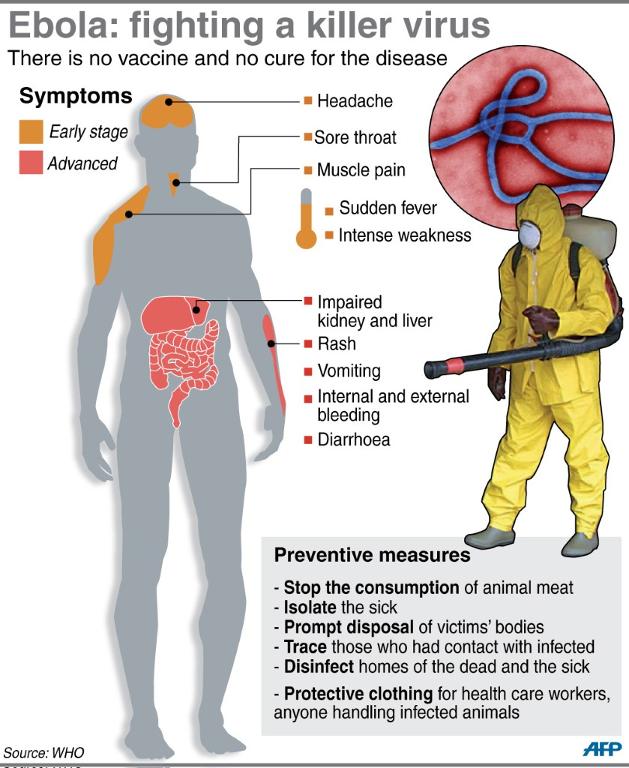Ebola kills 80-90% of it’s victims, so it is absolutely not a virus to be sniffed at (excuse the pun).
But you should know that mainstream media around the world are being stifled in their reports, by local governments who are trying to reduce the panic that is starting to break out after the death-toll has now topped 1000 across the African continent.
Whilst the intention of this post isn’t to freak you out or spread panic amongst civilised society – we do feel that you deserve to know the truth about what the media is, and isn’t telling you about the virus that is most likely to be the largest epidemic since the horrendous black death of 1348, which killed up to 200 million people within 6-18 months.
So let’s get to it – mainstream media and news outlets around the world are claiming that the Ebola virus is not an airborne virus, and can only be contracted via bodily contact and exchange of fluids. This is simply not true.
Image Credit: absolute-news.com
The Ebola virus can actually travel through the air when contained within droplets of water, which can then enter your throat/nasal passage and infect your body.
What’s happening then, is that the inaccurate facts being touted by the media are actually putting people at more of a risk, because they should be wearing masks when they’re even in the same room as those with Ebola, but they’re not because they’re under the impression that as long as they don’t make contact with the infected – they’re perfectly safe.
Your government wouldn’t wish me to tell you this, which is understandable to an extent because they don’t want to instill pre-determined panic before it’s really necessary. But it’s also important that you think about taking the following action, before it’s too late:
1. Arrange with your family, somewhere to go if you need to leave at short notice – an ideal place would be to a friend or relative’s house, who lives in a remote part of the country. Virus’ and diseases spread most quickly through densely populated areas, so the more remote your location – the better!
2. Make sure that you and your family have valid passports. In the event that this virus takes hold of your country before proper contamination-prevention measures have been put in place – it may well be time to leave the country entirely.
Don’t catch yourself prevented from leaving the country at a moment’s notice because you don’t have a valid passport.
3. Make a list of the items you need to take with you, and an action plan to follow in the event that you and your family are faced with leaving the house at short notice.
If you had just 20 minutes to get out of your house – you’d need to know exactly what you need to take with you, exactly where everything is, and exactly where you’re going to take it with you.




